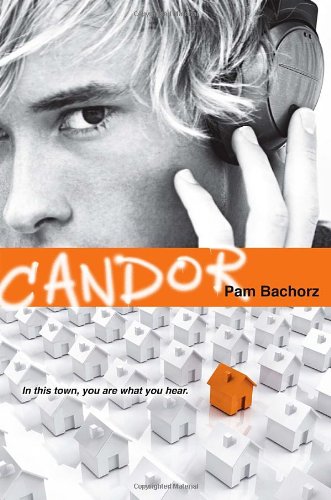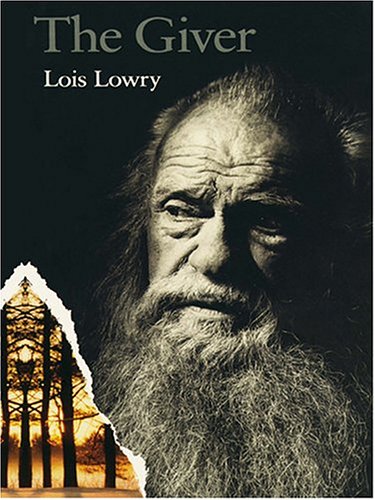DYSTOPIA!
Explore the best dystopian books with DYSTOPIA! Discover gripping tales of futuristic societies, authoritarian regimes, and survival in our curated list of must-read dystopian novels.

Book
Catching Fire
by Suzanne Collins
By winning the annual Hunger Games, District 12 tributes Katniss Everdeen and Peeta Mellark have secured a life of safety and plenty for themselves and their families, but because they won by defying the rules, they unwittingly become the faces of an impending rebellion.

Book
The Hunger Games
by Suzanne Collins
In a future North America, where the rulers of Panem maintain control through an annual televised survival competition pitting young people from each of the twelve districts against one another, sixteen-year-old Katniss's skills are put to the test when she voluntarily takes her younger sister's place.

Book
The Maze Runner
by James Dashner
THE #1 NEW YORK TIMES BESTSELLING MAZE RUNNER SERIES • A teenager with no memory must navigate a deadly maze to survive in book one of this post-apocalyptic phenomenon. “[A] mysterious survival saga that passionate fans describe as a fusion of Lord of the Flies [and] The Hunger Games” (Entertainment Weekly) When Thomas wakes up in the lift, the only thing he can remember is his name. He’s surrounded by strangers—boys whose memories are also gone. Outside the towering stone walls that surround them is a limitless, ever-changing maze. It’s the only way out—and no one’s ever made it through alive. Then a girl arrives. The first girl ever. And the message she delivers is terrifying: Remember. Survive. Run. Look for more books in the blockbuster Maze Runner series: THE MAZE RUNNER • THE SCORCH TRIALS • THE DEATH CURE • THE KILL ORDER • THE FEVER CODE

Book
The Forest of Hands and Teeth
by Carrie Ryan
Through twists and turns of fate, orphaned Mary seeks knowledge of life, love, and especially what lies beyond her walled village and the surrounding forest, where dwell the Unconsecrated, aggressive flesh-eating people who were once dead.





Book
Feed
by M. T. Anderson
In a future where most people have computer implants in their heads to control their environment, a boy meets an unusual girl who is in serious trouble.

Book
Unwind
by Neal Shusterman
The first twisted and futuristic novel in the perennially popular New York Times bestselling Unwind dystology by Neal Shusterman. In America after the Second Civil War, the Pro-Choice and Pro-Life armies came to an agreement: The Bill of Life states that human life may not be touched from the moment of conception until a child reaches the age of thirteen. Between the ages of thirteen and eighteen, however, a parent may choose to retroactively get rid of a child through a process called "unwinding." Unwinding ensures that the child's life doesn't "technically" end by transplanting all the organs in the child's body to various recipients. Now a common and accepted practice in society, troublesome or unwanted teens are able to easily be unwound. With breathtaking suspense, this book follows three teens who all become runaway Unwinds: Connor, a rebel whose parents have ordered his unwinding; Risa, a ward of the state who is to be unwound due to cost-cutting; and Lev, his parents' tenth child whose unwinding has been planned since birth as a religious tithing. As their paths intersect and lives hang in the balance, Shusterman examines complex moral issues that will keep readers turning the pages until the very end.


Book
The City of Ember
by Jeanne DuPrau
In the year 241, twelve-year-old Lina trades jobs on Assignment Day to be a Messenger to run to new places in her decaying but beloved city, perhaps even to glimpse Unknown Regions.



Book
The Adoration of Jenna Fox
by Mary E. Pearson
In the not-so-distant future, when synthetic bodies and brains are possible but illegal, Jenna Fox, who is recovering from a serious accident and suffering from memory lapses, learns a startling secret about her existence.


Book
Nineteen Eighty-four
by George Orwell
Eternal warfare is the price of bleak prosperity in this satire of totalitarian barbarism.



Book
Gone
by Michael Grant
In a small town on the coast of California, everyone over the age of fourteen suddenly disappears, setting up a battle between the remaining town residents and the students from a local private school, as well as those who have "The Power" and are able to perform supernatural feats and those who do not. Reprint.

Book
Hunger: A Gone Novel
by Michael Grant
It's been three months since everyone under the age of fifteen became trapped in the bubble known as the FAYZ. Three months since all the adults disappeared. Gone. Food ran out weeks ago. Everyone is starving, but no one wants to figure out a solution. And each day, more and more kids are evolving, developing supernatural abilities that set them apart from the kids without powers. Tension rises and chaos is descending upon the town. It's the normal kids against the mutants. Each kid is out for himself, and even the good ones turn murderous. But a larger problem looms. The Darkness, a sinister creature that has lived buried deep in the hills, begins calling to some of the teens in the FAYZ. Calling to them, guiding them, manipulating them. The Darkness has awakened. And it is hungry.

Book
Welcome to the Monkey House
by Kurt Vonnegut
“[Kurt Vonnegut] strips the flesh from bone and makes you laugh while he does it. . . . There are twenty-five stories here, and each hits a nerve ending.”—The Charlotte Observer Welcome to the Monkey House is a collection of Kurt Vonnegut’s shorter works. Originally printed in publications as diverse as The Magazine of Fantasy and Science Fiction and The Atlantic Monthly, these superb stories share Vonnegut’s audacious sense of humor and extraordinary range of creative vision. Includes the following stories: “Where I Live” “Harrison Bergeron” “Who Am I This Time?” “Welcome to the Monkey House” “Long Walk to Forever” “The Foster Portfolio” “Miss Temptation” “All the King’s Horses” “Tom Edison’s Shaggy Dog” “New Dictionary” “Next Door” “More Stately Mansions” “The Hyannis Port Story” “D.P.” “Report on the Barnhouse Effect” “The Euphio Question” “Go Back to Your Precious Wife and Son” “Deer in the Works” “The Lie” “Unready to Wear” “The Kid Nobody Could Handle” “The Manned Missiles” “Epicac” “Adam” “Tomorrow and Tomorrow and Tomorrow”